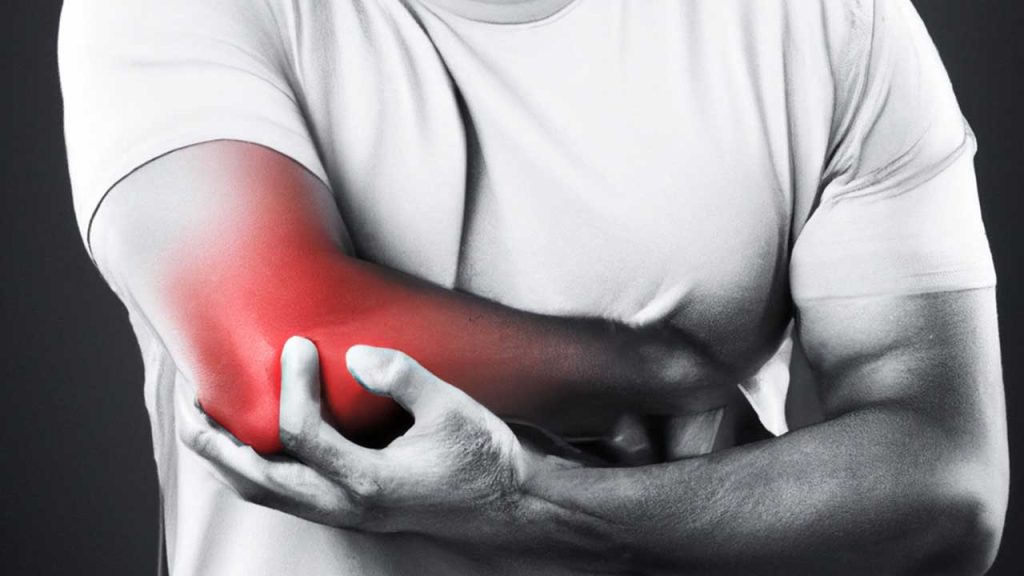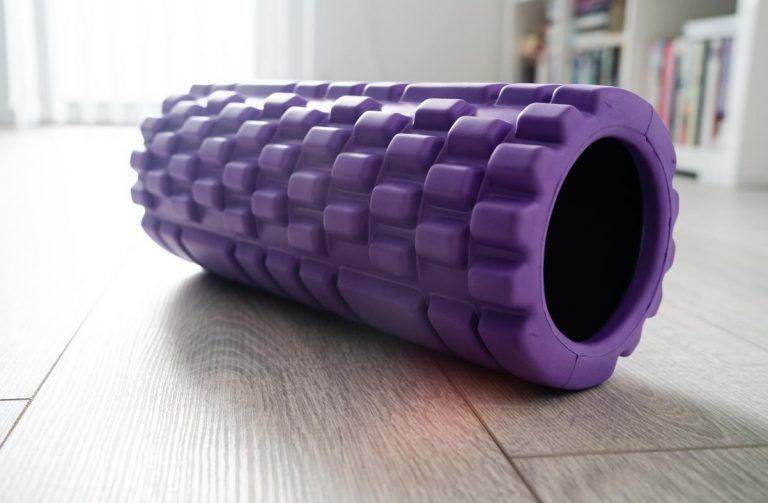What’s The Best Pain Reliever for Sore Muscles?

ListedFit is reader-supported. When you buy through links on our site, we may earn a small commission.
Whether you’re a seasoned gym goer or you’re new to weight training or just somebody with a very physically demanding occupation, sore muscles or DOMS (delayed onset muscle soreness) is something you are probably very much aware of. Sore aching muscles can be very painful and uncomfortable.
The majority of the time, sore muscles are not a cause for concern but finding the best pain reliever for sore muscles or the best things you can do for relief can do you a world of good by easing discomfort and stopping further harm.
The best pain relievers for sore muscles, including over-the-counter choices, topical lotions and gels, and natural therapies, will be covered in this article.
Table of Contents
Over-the-Counter Pain Relievers
Painkillers sold over the counter are frequently used to treat sore muscles. They are available in many different forms, including pills, capsules, and liquids, at the majority of drugstores. Ibuprofen, aspirin, and acetaminophen are a few examples of typical over-the-counter painkillers.

Ibuprofen
Nonsteroidal anti-inflammatory drugs (NSAIDs), such as Ibuprofen, can assist in reducing inflammation and relieving discomfort. It is frequently advised for painful muscles brought on by physical activity or exercise. It’s important to note that Ibuprofen can upset the stomach and have other negative effects, especially if used in high dosages or for a lengthy period of time.
Aspirin
Another NSAID that can help with pain management and inflammation is aspirin. But note that it’s not recommended for everyone, people with a history of stomach ulcers or bleeding issues, in particular, are advised to stay away from aspirin.
Before taking aspirin, consult with a healthcare provider because it may interact with other drugs.
Acetaminophen
Although not an NSAID, acetaminophen can still aid with pain relief. It is frequently advised for aching muscles brought on by regular activities, such as prolonged desk work. When taken as prescribed, acetaminophen is generally regarded as safe, but if taken in high dosages or when combined with alcohol, it can harm the liver.
When it comes to choosing an over-the-counter pain reliever for sore muscles, it’s important to consider the individual’s needs and preferences. For example, ibuprofen may be a better choice for someone with inflammation, while acetaminophen may be a better choice for someone with mild pain.
Topical Pain Relievers

Another alternative for treating painful muscles is topical pain medication. Topical creams and gels, as opposed to over-the-counter painkillers, are administered directly to the injured area.
They have the potential to provide instant relief and are frequently advised for aching muscles brought on by a variety of ailments or strains.
Pain medications that are applied directly to the skin come in the form of patches, lotions, and gels, among other formulations. Menthol, camphor, and lidocaine are examples of some of the active chemicals that are typically included in topical pain medications.
Menthol
A cooling substance that also helps relieve pain and inflammation.
When applied to the skin, it has the potential to provide a tingling feeling and is frequently used in gels and creams.
Camphor
Camphor, which acts as a numbing agent, can help relieve pain and stiffness in the body.
When applied to the skin, it has the potential to provide a warming sensation and is frequently used in gels and creams.
Lidocaine
Lidocaine is a local anaesthetic that can be applied to the painful region in order to numb it and provide pain relief.
It is most commonly available in patches and has the ability to provide relief that lasts longer.
It’s important to note that topical pain relievers can cause skin irritation or allergic reactions in some individuals. It’s also important to follow the instructions on the packaging and not apply too much of the product.
When choosing a topical pain reliever for sore muscles, it’s important to consider the individual’s needs and preferences. For example, a cream or gel may be a better choice for someone who wants quick relief, while a patch may be a better choice for someone who wants long-lasting relief.
Natural Remedies
There are natural treatments for sore muscles in addition to over-the-counter and topical pain medications.
Popular natural treatments include massages, essential oils, and Epsom salt baths.
Epsom Salt Baths

Adding Epsom salt to a warm bath and soaking for 20 to 30 minutes is the normal time taken for an Epsom salt bath.
The idea is that the magnesium found in Epsom salt eases tension in the body and lowers inflammation. It’s crucial to adhere to the directions and avoid using too much Epsom salt, which can irritate the skin.
Essential Oils

Some essential oils that can be used to soothe painful muscles are lavender and peppermint. These oils can be diluted and administered topically or added to a warm bath. While lavender oil can have a relaxing effect, peppermint oil can produce a cooling sensation.
Massages
A light massage can relax the tension of a sore muscle and improve blood flow to the injured area. You can consider using a good-quality massage gun, using manual massage tools like massage rollers, thumb-savers or of course, visiting a professional massage therapist.
It’s critical to employ good technique because poor technique might lead to more harm.
When considering natural remedies for sore muscles, it’s important to consider the individual’s needs and preferences. For example, someone who prefers natural remedies may find Epsom salt baths or essential oils to be a better choice, while someone who wants a more hands-on approach may prefer massages.
Conclusion – What’s The Best Pain Reliever for Sore Muscles?
In summary, DOMS is something we all face from time to time and there are several great effective options for relieving sore muscles, including over-the-counter pain relievers, topical creams and gels, and natural remedies. When choosing a pain reliever, it’s important to consider the individual’s needs and preferences, as well as any potential side effects or risks.
For mild soreness caused by everyday activities, acetaminophen may be a good choice. For soreness caused by exercise or physical activity, ibuprofen may be a better choice. Topical pain relievers can provide quick relief and may be a good choice for sore muscles caused by specific injuries or strains. Natural remedies, such as Epsom salt baths and massages, can also provide relief and may be a good choice for those who prefer natural remedies.
It’s important to remember that if soreness persists or if there are any concerns, it’s always a good idea to consult a healthcare professional. They can help determine the underlying cause of the soreness and recommend appropriate treatment options.
Overall, finding an effective pain reliever for sore muscles can help alleviate discomfort and prevent further injury. By considering the individual’s needs and preferences, as well as any potential side effects or risks, it’s possible to find the best pain reliever for each individual case.
Author
Latest entries
 FitnessAugust 19, 2023Yohimbe vs Yohimbine: A Quick Comparison Guide
FitnessAugust 19, 2023Yohimbe vs Yohimbine: A Quick Comparison Guide AshwagandhaJune 16, 2023Is Ashwagandha Good for Working Out? Key Benefits Explored
AshwagandhaJune 16, 2023Is Ashwagandha Good for Working Out? Key Benefits Explored Sports HeadphonesMay 25, 2023Why Your EarBuds Keep Falling Out – Quick and Easy Solutions
Sports HeadphonesMay 25, 2023Why Your EarBuds Keep Falling Out – Quick and Easy Solutions Nike ShoesMay 12, 2023Do Nikes Run Big or Small? Decoding the Perfect Fit
Nike ShoesMay 12, 2023Do Nikes Run Big or Small? Decoding the Perfect Fit
Affiliates:
This post may contain affiliate links that at no additional cost to you, the site may earn a small commission. We only recommend products we would use ourselves and all opinions expressed on this site are our own.
General Advice:
The information provided in this article is for general informational purposes only. It is not intended as a substitute for professional advice. Always consult with a qualified healthcare professional before starting any new diet, exercise program, or making changes to your health routine.
Accuracy Advice:
While we strive to provide up-to-date and accurate information, the content in this article may not reflect the most current research or medical guidelines. We encourage readers to do further research and consult with professionals for more personalized advice.
Our Recommendations:
The products and services mentioned in any of our articles are recommended based on our independent research and personal experience. We are not sponsored by any company. We aim to suggest products and services we believe are of high quality and could be beneficial to our readers.






